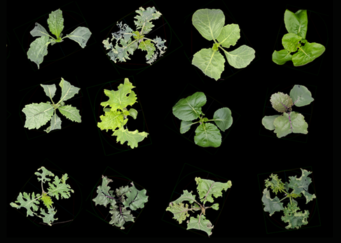Better AI for safer self-driving
Artificial Intelligence (AI) technologies are gaining wider adoption in recent years and are being increasingly deployed in critical applications such as cybersecurity and self-driving vehicles.

For self-driving cars, where safety is of the utmost importance, the AI is expected to be robust and reliable. However, research has revealed that deep learning, which powers the latest AI advancements, is prone to adversarial noise whereby the AI misclassifies images when imperceptible noises are added.

To make deep learning models robust against such noise, a team of researchers at NTU’s School of Computer Science and Engineering is utilising NSCC’s supercomputing resources to study the algorithms to train these models to rely on image features relevant to human eyes such as meaningful lines and edges of objects rather than superficial signals in images.
The team demonstrates that training a model to focus on salient features such as lines and edges of the object improves the model’s robustness against adversarial noise compared to non-robust models that rely on superficial features.
To find out more about how NSCC’s HPC resources can help you, please contact [email protected].
NSCC NewsBytes January 2021





